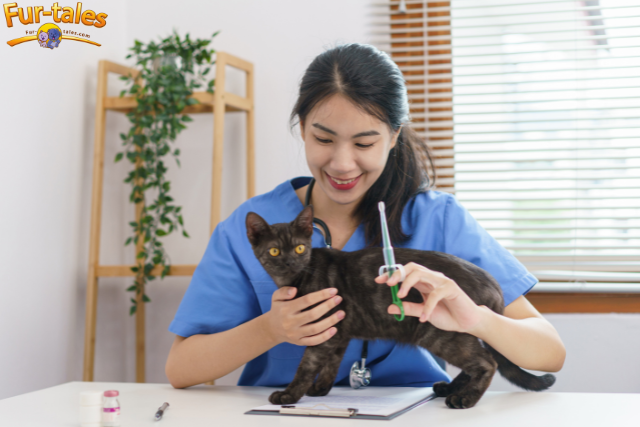
Natural Remedies for Common Pet Health Issues
Modern veterinary care has come a long way, offering advanced treatments for pets. However, many pet owners are increasingly interested in natural remedies that can complement conventional medicine or serve as first-line treatments for minor ailments. These remedies, when used appropriately, can support your pet’s health holistically, minimize side effects, and promote overall well-being.
This shift is often driven by a desire to reduce chemical exposure, focus on preventive care, and address health issues in a gentle, non-invasive way whenever possible.
Before trying any natural remedy, it’s crucial to consult your veterinarian — especially if your pet has an existing health condition or is on medication.
Natural Remedies for Skin Issues
1. Itchy Skin and Allergies
- Oatmeal Baths: Colloidal oatmeal is soothing and can reduce itching and inflammation. Mix ground oatmeal into warm water and bathe your pet.
- Coconut Oil: Applying coconut oil topically can moisturize dry skin, reduce allergies, and even combat minor bacterial infections.
2. Hot Spots
- Aloe Vera Gel: Natural aloe vera can cool and heal irritated skin.
- Calendula: A natural antiseptic, calendula ointment or a diluted solution can promote healing and reduce infection risk.
Natural Remedies for Digestive Issues
1. Upset Stomach
- Pumpkin Puree: Unsweetened pumpkin is rich in fiber and can regulate digestion. It helps with both diarrhea and constipation in pets.
- Ginger: Small amounts of fresh ginger or ginger tea can help alleviate nausea in dogs and cats.
2. Diarrhea
- Slippery Elm: This herb soothes the digestive tract lining. Available in powder or capsule form, it can firm up stools.
Natural Remedies for Joint and Mobility Problems
1. Arthritis and Joint Pain
- Turmeric: Known for its anti-inflammatory properties, turmeric can ease joint pain. Combine it with healthy fats like coconut oil for better absorption.
- Fish Oil: Rich in Omega-3 fatty acids, fish oil reduces inflammation and supports joint health.
2. Muscle Stiffness
- Massage and Gentle Stretching: Natural bodywork like massage can increase circulation, ease stiffness, and improve mobility.
In addition to these remedies, keeping your pet active with low-impact exercises and maintaining a healthy weight are vital. Together with natural supplements, these lifestyle adjustments can significantly improve mobility and reduce discomfort over time.
Natural Remedies for Anxiety and Stress
1. Separation Anxiety and General Stress
- Chamomile and Valerian Root: These herbs have calming properties and can be administered via pet-safe teas or supplements.
- CBD Oil: Derived from hemp, CBD oil can reduce anxiety and promote relaxation without causing a high (ensure it’s THC-free and pet-formulated).
2. Noise Phobias
- Thundershirt: While not a “remedy” in the herbal sense, pressure wraps like the Thundershirt create a calming effect naturally.
Natural Remedies for Ear Infections
1. Ear Cleaning
- Apple Cider Vinegar (Diluted): A 50/50 mixture with water can clean the ear canal and create an acidic environment that discourages yeast growth.
- Witch Hazel: This natural astringent can dry out excess moisture in ears.
Important: Never use ear drops if you suspect a ruptured eardrum. Always seek veterinary advice.
Natural Remedies for Eye Issues
1. Mild Irritation
- Saline Solution: Rinsing the eyes with a saline solution can flush out irritants.
- Chamomile Tea: A cooled chamomile tea bag can serve as a soothing compress for minor eye inflammation.
Natural Remedies for Fleas and Ticks
1. Flea Prevention
- Diatomaceous Earth: Food-grade diatomaceous earth sprinkled on carpets and pet bedding can kill fleas by dehydrating them.
- Essential Oils (with caution): Oils like lavender, cedarwood, and lemongrass can repel fleas naturally, but essential oils must be heavily diluted and pet-safe.
2. Tick Repellent
- Rose Geranium Oil: Just a drop of diluted rose geranium oil between the pet’s shoulder blades can act as a tick deterrent (cats should not use essential oils without veterinary guidance).
Natural Remedies for Respiratory Issues
1. Mild Cough or Cold
- Honey: Raw honey (never to puppies under 1 year) can soothe a sore throat and ease coughing.
- Steam Therapy: Letting pets sit in a steamy bathroom (without being in hot water) can loosen mucus and ease breathing.
Natural Remedies for Immune Support
1. Boosting Immunity
- Echinacea: An immune-stimulating herb that can be added in small amounts to food.
- Probiotics: A healthy gut microbiome directly impacts immune health. Giving pets probiotics can support their natural defenses.
Natural Remedies for Urinary Tract Issues
1. Urinary Health
- Cranberry Supplements: Just like in humans, cranberry extract can help prevent bacteria from adhering to the urinary tract walls.
- Marshmallow Root: This herb soothes the urinary tract lining and can reduce inflammation.
Guidelines for Using Natural Remedies Safely
- Consult a Veterinarian: Even “natural” substances can have side effects or interact with medications.
- Use Proper Dosages: Pets are sensitive, especially cats. Never assume human doses are appropriate.
- Opt for Pet-Specific Products: When possible, choose remedies formulated specifically for animals.
- Introduce Gradually: Start with small amounts to observe any allergic reactions or sensitivities.
Self-diagnosing and treating pets without professional advice can be risky. Natural does not always mean safe, and improper use may worsen symptoms or interact dangerously with prescribed medications.
When to Seek Veterinary Care
Natural remedies are best suited for preventive care, minor conditions, or complementary treatment. However, certain symptoms require immediate veterinary attention:
- Persistent vomiting or diarrhea
- Severe injury or trauma
- Breathing difficulties
- Unexplained weight loss
- Behavioral changes
If in doubt, it’s always safer to seek professional advice rather than relying solely on home remedies.
Image Designed Using Canva
